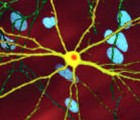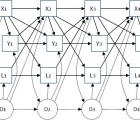Introduction: Huntington’s disease (HD) has profound motor, behavioural and cognitive symptoms. Despite the enormous burden of this disease on the quality of life (QoL) of patients and their families, there is very limited evidence on this topic. Considering the severity of HD patients, and the high prevalence in Cyprus more studies are needed to assess QoL among Cypriot patients, in order to improve our knowledge about their living conditions and to assist the management of this condition.
Project Aim: The aim of this cross-sectional study is to assess QoL among Cypriot patients with HD, using a standardized health-related QoL questionnaire.
Materials and Methods: A generic QoL questionnaire was used, namely EQ-5D, which is a standardised instrument for use as a measure of health outcomes and is applicable to a wide range of health conditions. The study was conducted with 34 patients, which represented 46% of the Cypriot HD patient population.
Results: Ability of patients to care for themselves and to carry out usual activities were reported to be most severely affected (37.5% and 40.6% replying “Severe Problems” respectively). Mobility and psychosocial well-being were also affected to a lesser extent (25.0% and 15.6% replying “Severe Problems”). Interestingly, in the anxiety/depression scale, 77.8% of asymptomatic patients reported “Some Problems”. Half of the patients did not experience pain or discomfort but 40.6% reported “Some Problems” and 6.3% reported “Severe Problems”. The Health Status as perceived by the patients was found to be moderately to severely affected. In multivariate ordinal regression analyses, age at onset and disease duration significantly impacted on self-care. In addition, disease duration was significantly associated with mobility, self-care and usual activities scales. No significant determinants were evidenced for Pain/Discomfort and Anxiety/Depression. Lastly, age of onset was found to be the only significant determinant of the cumulative QoL score (Range=5-15).
Conclusions: Age at onset and disease duration were found to severely affect the QoL of Cypriot HD patients, and more specifically their mobility, ability to self-care and perform usual activities. The percentage of patients reporting “Some Problems” in the Pain/Discomfort category can be explained by the direct translation of the word as presented in the questionnaire, indicating the need for language specific instruments. Perhaps more noteworthy is the phychosocial burden on even asymptomatic patients, which needs to be acknowledged and managed to improve their quality of life.




